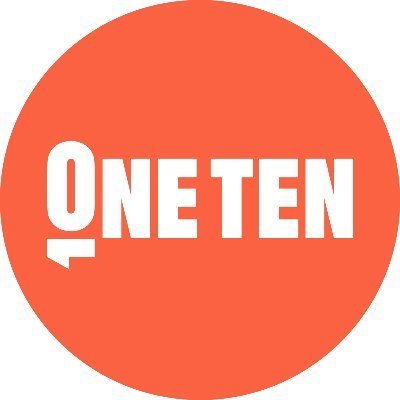
Community and business leaders are invaluable partners to advocate for and support Black learner excellence
Black learners strengthen the vitality of communities and bolster the impact of higher education and student success.
The data presents a clear and compelling call to action for community and business leaders to increase employment opportunities in high-demand fields for Black learners:
9%
representation of Black employees in the STEM workforce
23%
Black workers have median wages that are 23% lower than white workers

We can and must change these outcomes for Black Learners.
Learn more about the ways community and business leaders are implementing R-E-A-L

Real Transparency and True Affordability
We must focus not only on increasing need-based aid, but also on making more visible the bottom-line cost students will pay, based on a realistic assessment of what students can reasonably afford.
Businesses and community organizations play a significant role in helping to ensure affordability for students. They award more than 1.7 million fellowships and private scholarships each year, and employers spend millions of dollars on tuition assistance programs.¹³⁹ Employers fund tuition for their employees, are philanthropic partners, and advocate for addressing affordability with policymakers. Community leaders play similar roles, and many lead college access organizations that help Black learners navigate financial aid and scholarship processes. BlackLearnerSuccess.com Providing financial resources besides governmental financial aid and institutional aid is crucial to making college more affordable for Black learners. With the current financial aid system, Black learners are accumulating student loan debt at much higher rates than their white counterparts. In 2015−16, 33% of Black graduates with a bachelor’s degree left their postsecondary institution with more than $40,000 in debt, compared with 18% of white graduates. Only one-third of Black learners graduated with an associate degree without debt, compared with 49% of white associate degree graduates.¹⁴⁰ Direct business and community organization investments in Black learners not only increase student success, but also improve broader community outcomes.
To provide real transparency and true affordability, community and business leaders should:
-
Although nearly 60% of employers offer tuition reimbursement, only up to 5% of eligible employees participate.¹⁴¹
-
Most public four-year institutions are not affordable for the average low-income student even after receiving government and institutional grant aid, borrowing, and working.¹⁴³
-
The bachelor-degree completion rate increases by 12 percentage points for students of color who receive additional scholarships.¹⁴²
-
Learning from peers and Black professionals, students can understand and navigate financial aid and scholarship systems.¹⁴⁴
IMPACT ON BLACK LEARNERS
As a result of Real Transparency and True Affordability, Black learners will:
Receive additional scholarship and financial assistance to defray educational costs.
Be incentivized and supported to pursue high-demand fields without concern about costs.
Understand how to navigate scholarship and financial aid applications and related processes.

Ensured Success Through Shared Ownership
At each level—federal, state, system, and institutional—we must create mechanisms to support Black learners and ensure shared accountability for their success in and beyond their postsecondary experiences.
Developing a relentless focus on Black learners’ success requires shared ownership and partnerships beyond typical actors in postsecondary education and policy spaces. The voices of business and community leaders bolster advocacy efforts, and their flexibility to work outside the constraints of government enable them to act swiftly and creatively on behalf of Black learners. Partnerships between corporations and historically Black colleges and universities (HBCUs) provide an important example of the benefits of shared ownership. Black learners benefit from scholarship funds, paid internship opportunities, and educational programming, while businesses are able to recruit and diversify their workforce; both contribute to improved Black learner career outcomes. With more than 100 HBCUs across 20 states and 25% of Black learners with STEM degrees graduating from HBCUs,¹⁵¹ these partnerships are proving impactful in promoting Black learner college and career success.
To ensure success through shared ownership, community and business leaders should:
-
Community and business leaders need to hold policymakers and institutions accountable for the educational success and economic mobility of Black learners through direct advocacy. They should also focus on tracking changes over time and working toward policy change.¹⁵²
-
Employer partners can offer paid internships, share information on their industry with Black learners, communicate workforce needs to educational leaders, host events, provide program feedback, and forge new partnerships.¹⁵⁴
-
This can include creating advisory committees that include Black learners, creating a dedicated liaison to partner with higher education in support of Black learners, and creating wrap-around services for Black learners even as they seek and gain employment.¹⁵³
IMPACT ON BLACK LEARNERS
As a result of Ensured Success Through Shared Ownership, Black learners will:
Benefit from shared partnerships focused on Black learner success.
Participate in the development of community-based and business-led approaches to advance Black learner excellence.
Student Voice
Black learners seek more support in finding internship opportunities connected to classroom learning.
The 2021 National Survey of College Internships queried students about barriers to participating in internships. More than one-third (36%) of Black students reported they were unsure how to find internships, and 23% reported a lack of internship opportunities.¹⁷² Black learners need more information and resources about internships, especially paid internships. Bridging gaps and forming more robust partnerships between organizations and postsecondary institutions is crucial to support Black students’ participation in internships and other experiential learning opportunities.

Academic and Social Supports that Create a Sense of Belonging
Institutions and systems must proactively consider the disproportionate challenges facing Black learners inside and outside the classroom by developing supports and connecting them to community resources. This will afford opportunities to provide robust advising, support to access pathways to high-wage and high-demand jobs, and assistance to address critical issues in an environment that fosters respect and a sense of belonging.
Business and community leaders can mobilize partners to provide essential guidance and mentoring to Black learners. By learning from professionals, students get career exposure, expertise, guidance, and networking and growth opportunities. BlackLearnerSuccess.com Mentoring has been shown to provide consistent and positive effects on educational attainment.¹⁵⁹ For Black learners, mentoring can support persistence and completion.¹⁶⁰ Several philanthropic foundations are funding initiatives to center Black learners and provide them with both academic and social support, such as tutoring, mentoring, college and career planning, and career exposure.
To develop academic and social supports that create a sense of belonging, community and business leaders should:
-
Black learners have found mentoring worthwhile, and mentoring has a positive impact on their college transition.¹⁶¹
-
Establishing a forum that includes organizations offering child care, housing, and peer affinity support can strengthen coordinated assistance for students.¹⁶³
-
Foundations across the nation, large and small, have invested in Black learners, and these entities can uniquely support and augment what institutions serving Black learners already do well.¹⁶²
-
Several Black-led nonprofit organizations have incorporated educational partnerships into their missions.¹⁶⁴
IMPACT ON BLACK LEARNERS
As a result of Academic and Social Supports, Black learners will:
Receive mentoring and guidance from Black professionals with relatable experiences and backgrounds.
Become inspired and motivated to challenge themselves and prepare for education and training beyond high school.
Receive customized, systemic, and sustained support to get to and through a credential or degree.

Learner-Centered Teaching Practices for Black Learners
Teaching practices should center students’ lived experiences, perspectives, strengths, and needs as grounding for learning.
Community and business leaders can further support Black learners working to complete their postsecondary credential by providing impactful experiential learning opportunities.
To strengthen learner-centered teaching practices for Black learners, community and business leaders should:
-
Companies convert 58% of internships into full-time employment, resulting in a benefit for both students and employers.¹⁷³
-
Nationwide, Black workers represent less than 10% of apprentices.¹⁷⁵
-
Community leaders can offer resources and training and facilitate crossinstitution mentoring programs to ensure faculty and, ultimately Black learners, are seen and supported.¹⁷⁴
IMPACT ON BLACK LEARNERS
As a Result of Learner-Centered Teaching Practices, Black learners will:
Feel valued and empowered in the classroom, resulting in increased persistence and completion rates.
Experience career-connected learning, enabling them to be competitive for immediate employment post-graduation or credential completion.

Speak UP, Step UP, Level UP
To take action and pledge your commitment to empowering and supporting Black learners to choose and excel in quality credentialing programs, join us by clicking the link below. You will receive resources, templates, updates on national work, and event notifications happening near you.
How can we best support you?























